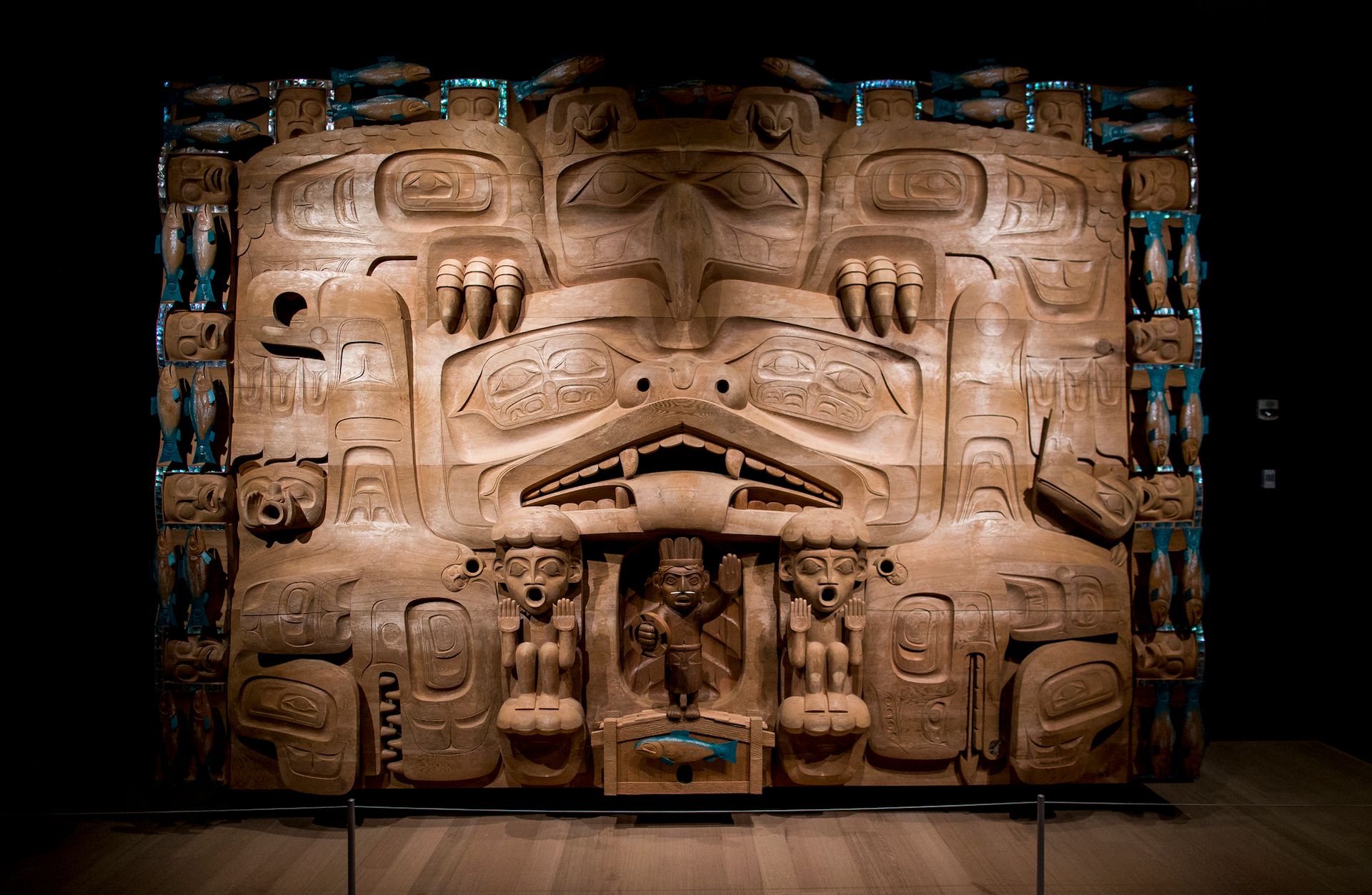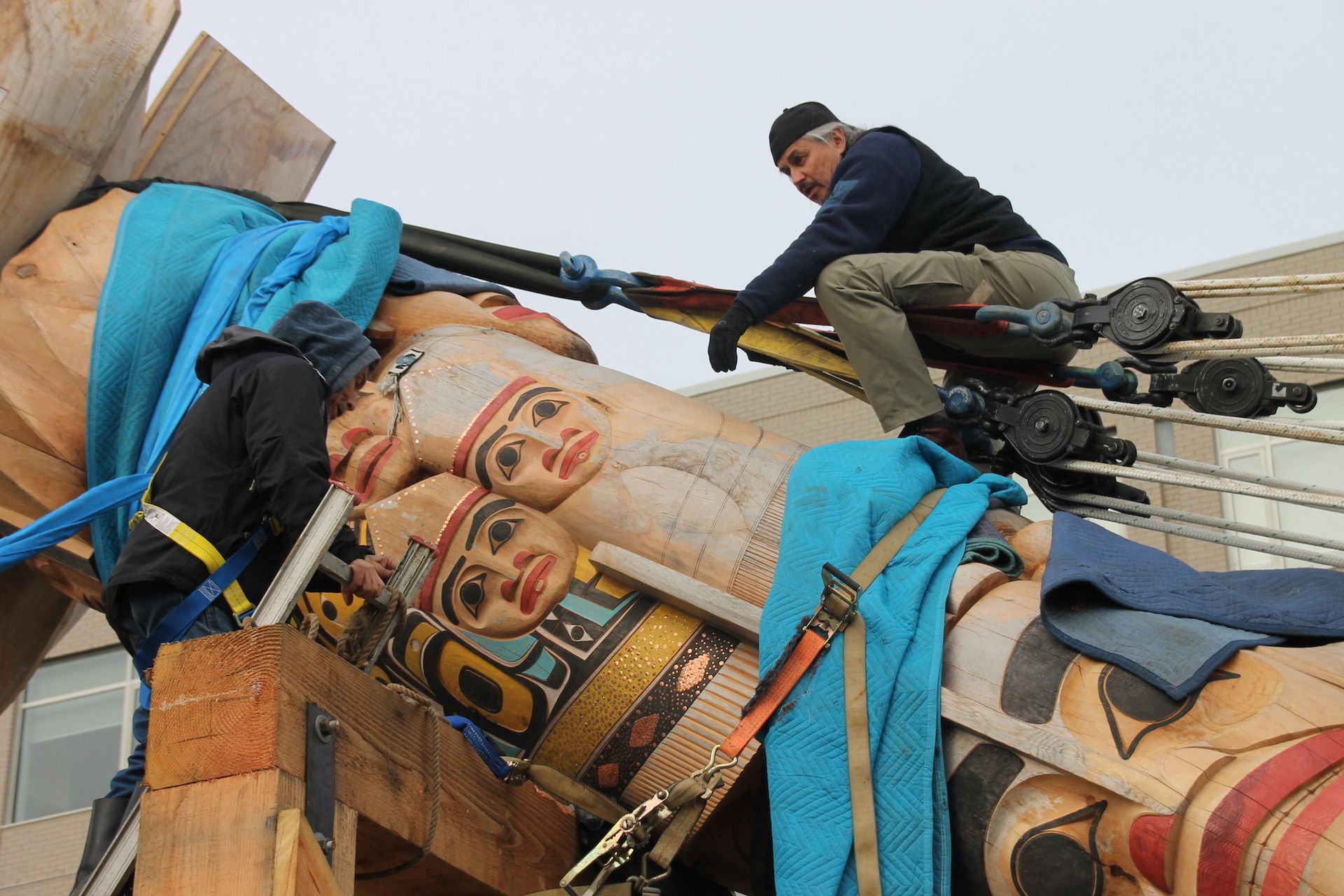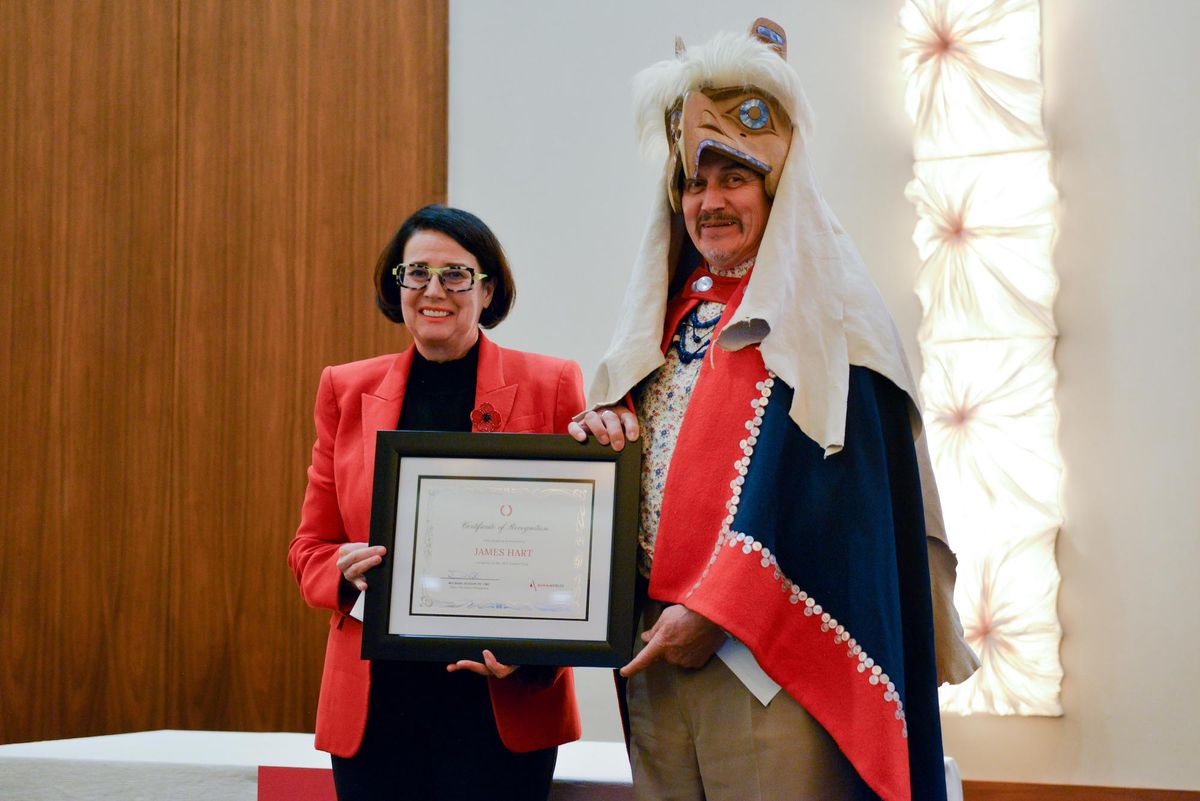Last week the C$100,000 ($80,000) Audain Prize for Visual Art, one of Canada’s top art awards, was given to artist James Hart (7idansuu), the hereditary chief of the Eagle Clan of the Haida Nation, who lives between Vancouver and Haida Gwai (formerly called the Queen Charlotte Islands) off the Northwest coast of British Columbia.
The prize, inaugurated in 2004, is awarded by collector Michael Audain’s Audain Foundation and presented by the Audain Art Museum in Whistler. Past recipients have included Stan Douglas, Jeff Wall, Liz Magor, Rodney Graham, Gathie Falk and Paul Wong.
“It was hard to keep it a secret,” says the artist, who was born in the early 1950s to a Haida mother, Joan Hart, the granddaughter of artist and chief Charles Edenshaw, and a European father. For a week, only his family knew about the prize, and Hart could not reveal anything until the end of the award ceremony on 8 November at the Fairmont Pacific Rim Hotel in Vancouver. “I slipped away to change into my traditional regalia,” he relates from his home in Haida Gwai, “and then came out to accept the award.”

James Hart, The Dance Screen (The Scream Too) (2018) Photo by Bob Frid
Hart’s work Dance Screen (The Scream Too) (2018), a 4.75m by 3.2m cedar panel that took Hart and a team of carvers more than three years to complete, focuses on the post-contact loss of salmon and its central role in the life of the Haida. It holds pride of place at the Audain Art Museum, where he unveiled another work on 12 November called The Three Watchmen (2021), invoking guardian spirits. The cast bronze sculpture is mounted on a concrete base encircled with a carved aluminum band entitled The Great Flood (Ti A7xa7 St’ak’), a collaboration by Xwalacktun and Levi Nelson (Svpyan).
By virtue of his European father, Hart avoided Canada’s infamous residential schools, where 150,000 indigenous children were taken from their families and forced to attend institutions rife with abuse and what has been termed “cultural genocide”. Instead he found his calling in high school and apprenticed first with Robert Davidson in 1978 and then worked as an assistant for Bill Reid from 1980-84, when his Parkinson’s Disease prevented him from carving. Hart was the first Northwest Coast artist to work in bronze, beginning in 1982.
His iconic Reconciliation Pole, erected in 2017 at the University of British Columbia (UBC), features a stylized replica of the residential school his grandfather attended as its centrepiece and honours thousands of children who died at the institutions until the last one closed in 1996. Commissioned by UBC and the Audain Foundation, it was one of the first large-scale works to explicitly reference residential school abuse. It is embellished with more than 68,000 copper nails—hammered in by survivors, volunteers and schoolchildren.

Haida chief and carver James Hart finishes his Reconciliation Pole at UBC in Vancouver on 31 March 2017. Photo by Hadani Ditmars
Viewed from below, the nails take on skeletal shapes on the bottom of the school. Above it, carvings of children by a variety of First Nations artists representing survivors from across Canada—from the Inuit to the Musqueam to New Brunswick’s Maliseet—hold hands. Their school-issued ID numbers are carved into their torsos, and guardian spirits hover protectively above them. Starting from the bottom, the pole depicts a timeline of pre- and post-contact life—with an eagle at the top that the artist carved with his late son Carl—representing a way forward through “working together”, says Hart. The pole is at once a moving work of art, and a historical monument.
While Hart says he’s honoured as an artist to receive the Audain Prize, it’s also “part of the larger process of reconciliation”. He plans to use some of the funds to build a new studio in Haida Gwai as he works on his next projects, including a memorial totem for his son Carl and a carving commission from the National Gallery of Canada.


